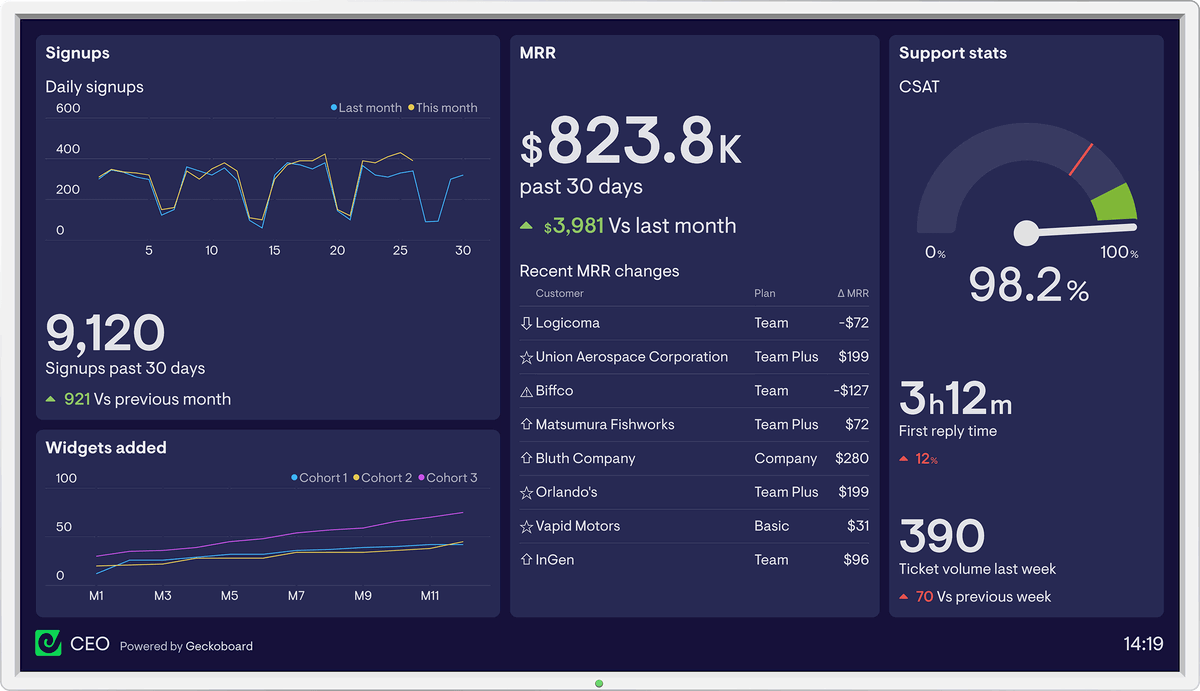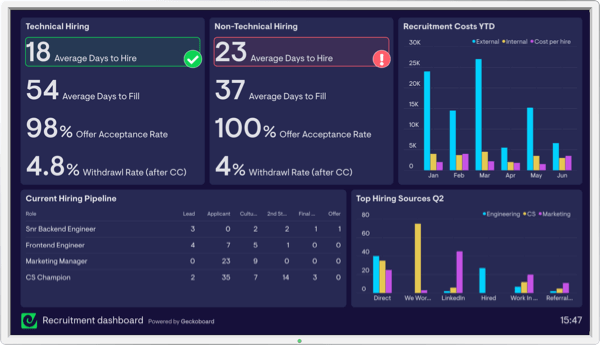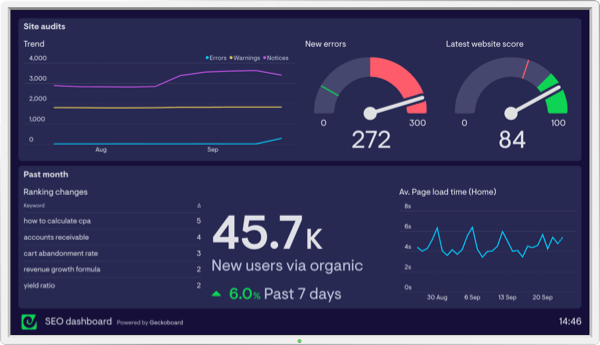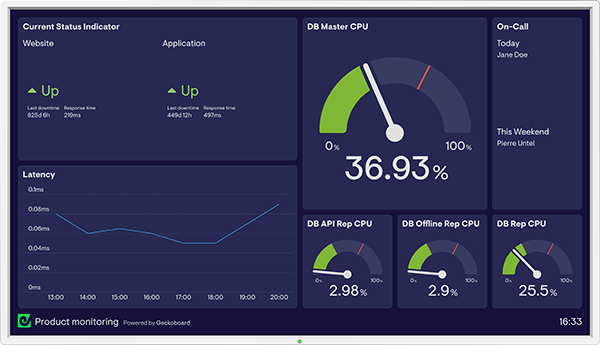What if your local paper was a community dashboard - daily updates on the targets (energy, food, travel, etc) that you had agreed to?
Better than this dashboard
We are in the market for new ideas about how news and journalism could be done, as we continue our researches into what an alternative media system might look like.
The increasingly cited tech libertarian Balaji Srinivasan did a Tweet thread the other week which takes a fascinating bite out of this apple. The original tweet is embedded below, followed by the text of the following posts:
Any company beyond a certain scale has a set of dashboards that the CEO and all execs review each day. Examples below.
What if you did that for a community, like a DAO? [DAO stands for Decentralised Autonomous Organisation. This is an organization represented by rules encoded as a transparent computer program, controlled by the organization members, and not influenced by a central government. As the rules are embedded into the code, no managers are needed, thus removing any bureaucracy or hierarchy hurdles. - Ed]
The point of tracking metrics over time, and centering the morning on them, is that it gives long-term memory and focus.
The day doesn't start with random stories from a newspaper. The day starts with visualizing shared long-term goals, and tracking actions against those goals.
On a personal level: what do you *need* to know about and track over time?
- Your health, blood glucose, physical fitness
- Your income, burn rate, personal runway
- Your progress towards long-term goals
Not random infotainment. That's recreation.
So: dashboards > newspapers.
Now extend this to communities
The metrics you consider personally important should also be considered important by the community you want to join, and on their dashboard.
Maybe you want to learn a language or minimize sugar. With a little thought, you can dashboard it.
dashboards > newspapers
This feels like a good vector of attack to definitionally disrupt newspapers.
First thing you look at each day shouldn't be random stories someone else picked. Should be carefully selected metrics you want to improve.
If we think about it from the "jobs to be done" perspective, newspapers have this incredible pride-of-place — first thing you look at in the morning! — but typically do not add enough value to deserve that position.
Personal dashboards could, though....https://hbr.org/2016/09/know-your-customers-jobs-to-be-done
Take the sugar out of your coffee, take the newspaper (or news feed) out of your morning. Replace it with a personal dashboard, then a community dashboard.
Doesn't necessarily mean reading *zero* news, zero infotainment, zero serendipity. Just treat it like watching a movie, as part of your entertainment budget.
Product-as-journalism
- coinmarketcap.com
- windy.com
- nomadlist.com
- ourworldindata.org
Dashboards that present numbers alongside (monetizable?) actions can replace pure text coverage in many verticals.
The numbers are the raw data
Dashboards are presentations thereof
Subjective text accompanies dashboards
Monetizable actions alongside that text
Seems obvious, and already happening, yet also an important lens on what useful information looks like.
Newspapers usually leave their call to action implicit. But it's often "get angry at this guy", then "subscribe now".
The alternative concept of calls-to-action alongside dashboards is interesting. Every action recommended would be explicit, vetted, and possibly monetized.
This is similar to the paper/scanner/digital document concept. As you go from cash, to fintech, to cryptocurrency, you go from the offline version, to a scanned online, to the natively digital version.
What's possible when it's not just a scanned broadsheet?
The ability to have buttons next to multimedia is only a few decades old. And we still separate things out into "apps" and "content".
But it feels that far more can be done with actions embedded in the content, like quantum.country.
One other thing: if you have call-to-action buttons alongside dashboards and textual content, money is now on the line. So there may be a sort of a built-in fact checking that occurs.
"Is this really true, is this worth my money?" There's an incentive to be cautious.
At A/UK we’ve been noticing the rise of interest in community dashboards of one kind or another. Recently the Devon Doughnut has proposed a set of measurements to keep the South-West English region within Kate Roworth’s planetary and social boundaries.
In 2018, we reported on Dashboard.Earth, which now seems to have narrowed its focus to reporting on the sustainability performance of the community of Los Angeles, via an Apple/Android app (see pics above).
There’s also quite an affinity with Peter Anderson’s VocalEyes and also particularly his LocalEyes project (mentioned in this June 2021 editorial, citing them as “more authentic, autonomous community structures to capture the wants and needs of people on the ground as they arise.” LocalEyes offers a dashboard which could comprise different levels of data input from a community (see below):







